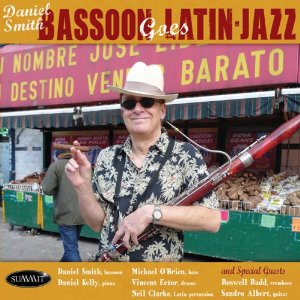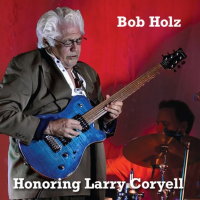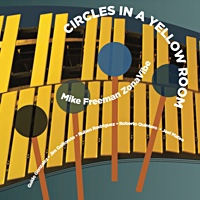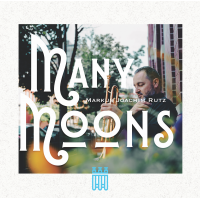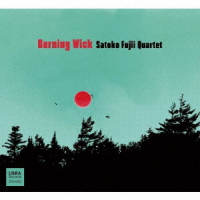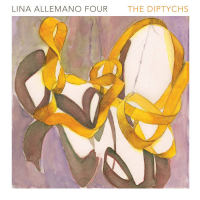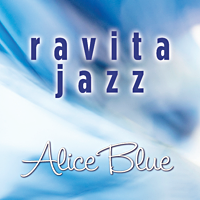Home » Jazz Articles » Album Review » Daniel Smith: Bassoon Goes Latin Jazz!
Daniel Smith: Bassoon Goes Latin Jazz!
Smith has already conquered the classical world, and this is his fourth crossover outing in jazz, following on the heels of Blue Bassoon (Summit, 2010). With each of his prior jazz albums, Smith has stuck to classic repertoire and the same goes for this date. Obligatory Brazilian inclusions from the likes of Antonio Carlos Jobim and Luiz Bonfa, classic Dizzy Gillespie ("Manteca"), and a pair of nods to Mongo Santamaria (in the form of his own "Come Candela" and Herbie Hancock's "Watermelon Man") make up about half the program. In other places, Smith takes material with a natural funk-leaning feel, like "The Chicken," and adds a little spice to the mix.
When Smith catches fire and finds the right vehicle for his instrument's sound, the results are inspiring. He goes against the grain on "Black Orpheus," defying the odds and proving that the bassoon can be elegant, but the fun and funky "Watermelon Man" is even more impressive. Roswell Rudd makes a guest appearance and proves to be a perfect match for Smith, in timbre and style. While these bright spots point to the potential of the bassoon in this type of setting, the album does have a few rough spots. Smith's phrases are rhythmically awkward at times ("Yardbird Suite"), some intonation issues pop up, and some songs require far greater horsepower than a bassoon can provide ("The Chicken"). This aside, Smith still deserves to bask in the glow of the more successful performances.
As with any Latin date, regardless of the leader's instrument of choice, a lot rests on the rhythm section, and Smith sees to it that he has players who can make this music sizzle. Drummer Vincent Ector and percussionist Neil Clarke revel in a street party atmosphere ("So Danco Samba"), provide subtler support when the rhythmic intensity recedes ("Black Orpheus"), and do the Mambo in style ("Mambo From The Dance At The Gym"). Pianist Daniel Kelly provides a little extra kick with his superb solo soloing, and bassist Michael O'Brien ties it all together.
With each successive project, Smith takes a bolder approach with his bassoon-in-jazz projects. Who knows where his fifth outing might take him.
Track Listing
Mr. Kenyatta; Watermelon Man; So Danco Samba; Listen Here; Black Orpheus; Yardbird Suite; Manteca; Korg In; Peace; The Chicken; Come Candela; Mambo From The Dance As The Gym.
Personnel
Daniel Smith
bassoonDaniel Smith: bassoon; Daniel Kelly: piano; Michael O'Brien: bass; Vincent Ector: drums; Neil Clarke: percussion; Roswell Rudd: trombone (2, 7); Sandro Albert: guitar (1, 5, 9).
Album information
Title: Bassoon Goes Latin Jazz! | Year Released: 2011 | Record Label: Summit Records
Tags
PREVIOUS / NEXT
Support All About Jazz
 All About Jazz has been a pillar of jazz since 1995, championing it as an art form and, more importantly, supporting the musicians who make it. Our enduring commitment has made "AAJ" one of the most culturally important websites of its kind, read by hundreds of thousands of fans, musicians and industry figures every month.
All About Jazz has been a pillar of jazz since 1995, championing it as an art form and, more importantly, supporting the musicians who make it. Our enduring commitment has made "AAJ" one of the most culturally important websites of its kind, read by hundreds of thousands of fans, musicians and industry figures every month.


